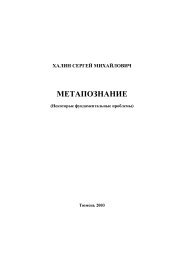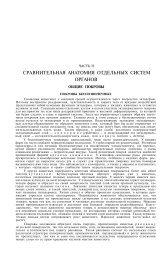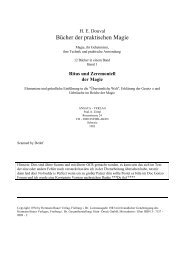The Economic History of Byzantium - Dumbarton Oaks
The Economic History of Byzantium - Dumbarton Oaks
The Economic History of Byzantium - Dumbarton Oaks
Create successful ePaper yourself
Turn your PDF publications into a flip-book with our unique Google optimized e-Paper software.
1016 NICOLAS OIKONOMIDES<br />
that seem unquestionable. When <strong>The</strong>ophanes is describing the humiliation <strong>of</strong> Emperor<br />
Nikephoros by Caliph Harun al-Rashid (805), he tells us that the Byzantine emperor<br />
(whom he pr<strong>of</strong>oundly disliked) undertook to pay the caliph 30,000 gold coins<br />
per annum for the state plus 3 nomismata as his own poll tax and a further three for<br />
his son Stavrakios. 112 It is clear that by this pact the Byzantines were compelled to accept<br />
a public humiliation much more painful than any financial loss would have been,<br />
yet the loss itself was not so terrible if we bear in mind that to have fought a major<br />
campaign against the caliphate (with very little chance <strong>of</strong> success, as things stood at that<br />
time) would have cost a great deal more.<br />
As far as the tenth century is concerned, we know exactly how much an Italian noble<br />
was paid to suppress an anti-Byzantine rising with his own forces and to deliver the<br />
territory that had been in revolt into the hands <strong>of</strong> the strategos <strong>of</strong> Longobardia: 7,200<br />
nomismata plus some silk cloth and valuable plate for himself and some more for his<br />
bishops and feudal lords. 113 To fight a campaign overseas in Italy, even on a small scale,<br />
would have cost much more. <strong>The</strong>re are other examples such as this.<br />
State Gold Reserves<br />
Idonot believe that it is possible, with the figures at our disposal, to arrive at even an<br />
approximate estimate <strong>of</strong> the Byzantine budget. <strong>The</strong> attempts made in this direction<br />
have relied on sources—most <strong>of</strong> them Arab—<strong>of</strong> dubious reliability that flatly contradict<br />
the most reliable <strong>of</strong> the Byzantine sources. Moreover, these estimates call for so<br />
much arbitrary assumption and abstraction in reaching any kind <strong>of</strong> conclusion that<br />
even when apparently “reasonable” they are actually the product <strong>of</strong> the modern author’s<br />
will and <strong>of</strong> the various patterns and molds he has imposed on the medieval<br />
past—none <strong>of</strong> which has anything at all to do with the real data given by the sources. 114<br />
<strong>The</strong> only general figures we possess in connection with the magnitude <strong>of</strong> the Byzantine<br />
state economy are those that state the reserves <strong>of</strong> gold the various emperors passed<br />
on to their successors, and on the basis <strong>of</strong> which they were judged to have been successful<br />
or otherwise. Of course, many texts refer to the mythical wealth <strong>of</strong> the imperial<br />
treasury. In others, however, we are told that the emperor was forced to melt down<br />
precious plate or the jewelry <strong>of</strong> the palace and the churches and turn it into coin 115 in<br />
order topay the salaries or deal with a sudden and urgent threat to the defenses <strong>of</strong><br />
the empire. If we consider the consequences this must have had for the morale <strong>of</strong> the<br />
population and the reaction it could (and did) trigger, especially where the assets <strong>of</strong><br />
112 <strong>The</strong>ophanes, 482.<br />
113 De cer., 1:661–62.<br />
114 Treadgold, Byzantine State Finances.<br />
115 This is what Michael III, who had squandered the wealth <strong>of</strong> the empire, was said to have done<br />
not long before 867 (<strong>The</strong>ophanes Continuatus, 173). However, the information is questionable, coming<br />
as it does from historians who constantly criticize Michael III in order to praise and justify his successor<br />
(and assassin), Basil I.








